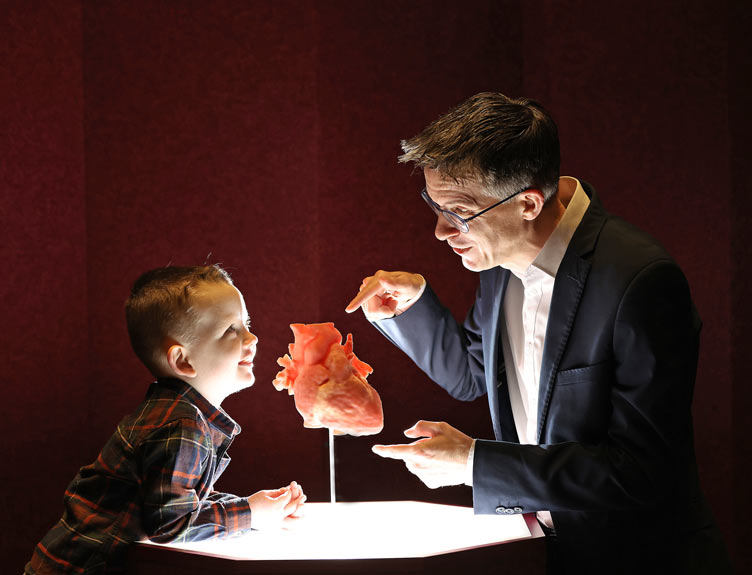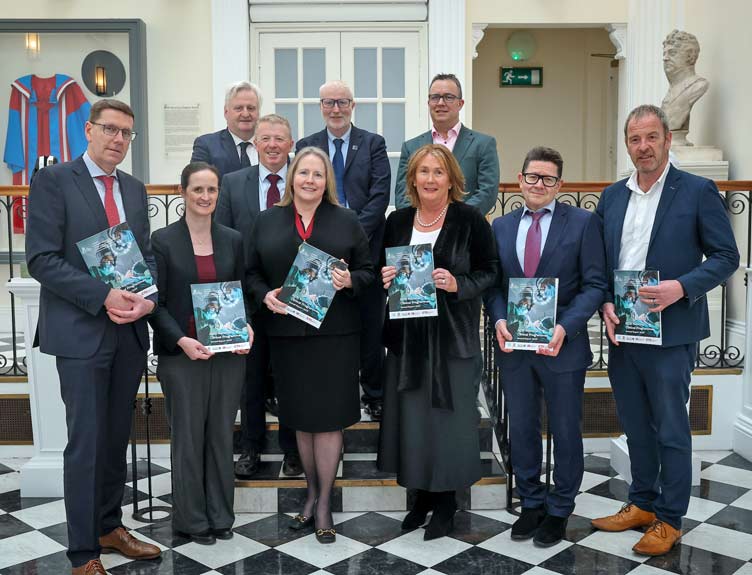RCSI research uncovers ‘cross-talk’ between bone and cartilage cells
New research led by RCSI University of Medicine and Health Sciences has discovered that signals from bone cells may be involved in the development of painful and debilitating conditions such as osteoarthritis following injury.
The study, published in the International Journal of Molecular Science, opens up a new understanding of how bone tissue communicates with cartilage, a protective cushioning layer in the joints where bones meet.
The research was carried out at RCSI, Trinity College Dublin and AMBER, the SFI Research Centre for Advanced Materials and BioEngineering Research.
“Bones are not simply inert, as many people might think, they are very much alive. The cells in our bones are very sensitive and actively communicate with each other, and with other parts of our body,” said Dr Paige Hinton, who led the study and recently completed her PhD at the Tissue Engineering Research Group in RCSI’s Department of Anatomy and Regenerative Medicine.
“In this study we found that different parts of the skeleton – in this case bone cells and cartilage cells – communicate with each other in ways that weren’t previously known.”
Preventing osteoarthritis
This conversation between bone and cartilage is of particular interest following an injury such as ligament injury in the knee joint. This trauma – even if it is successfully treated surgically – can still lead to osteoarthritis. Understanding how these cells communicate with each other after such an injury, could potentially prevent the onset of osteoarthritis.
“Most people think that osteoarthritis is related only to the cartilage or slippery material in your joints, however this work shows that our bones themselves are also an important part of the process – we were able to show that bone cells can communicate with cartilage cells from a distance, and the bone cells could influence the cartilage cells to transition to a disease-like state,” said Dr Hinton.
Building our understanding
Professor Oran Kennedy, who supervised Dr Hinton’s PhD in RCSI, said the research group will now use the system to delve deeper into the role of bone signalling in the process of cartilage degeneration, particularly after a traumatic event in a joint.
“A common injury among young active people is a torn anterior cruciate ligament (ACL) in the knee. This can be fixed quite successfully in most cases by a surgical procedure, but even then many patients develop post-traumatic osteoarthritis within about 10 years. By understanding how the bone reacts to such an injury, we hope we can target and protect those joints with therapies to slow or even prevent the osteoarthritis from developing. Understanding the cross-talk between bone and cartilage cells under stress is an important step in building our understanding of the underlying process.”
The study was funded through the RCSI StaR Programme and the Science Foundation Ireland Career Development Award (CDA) programme.



